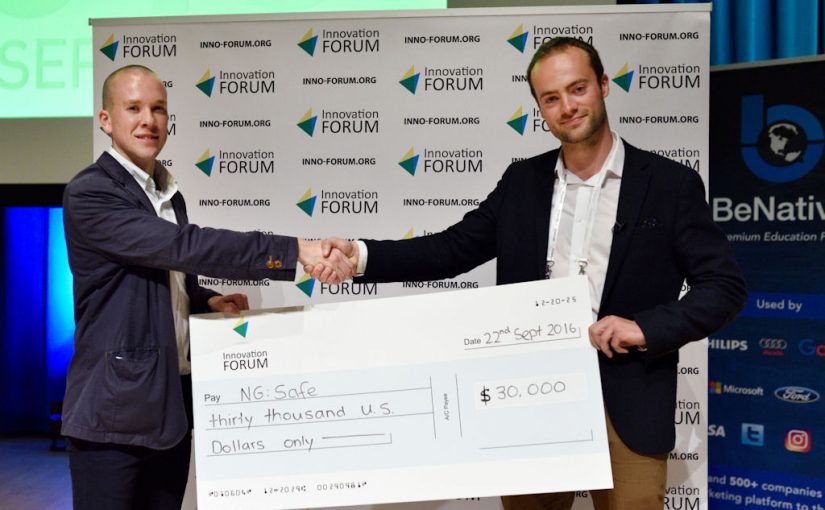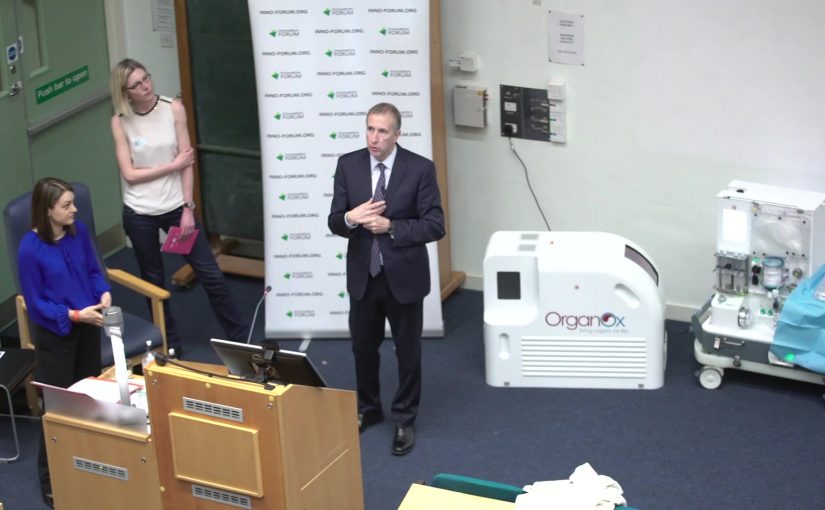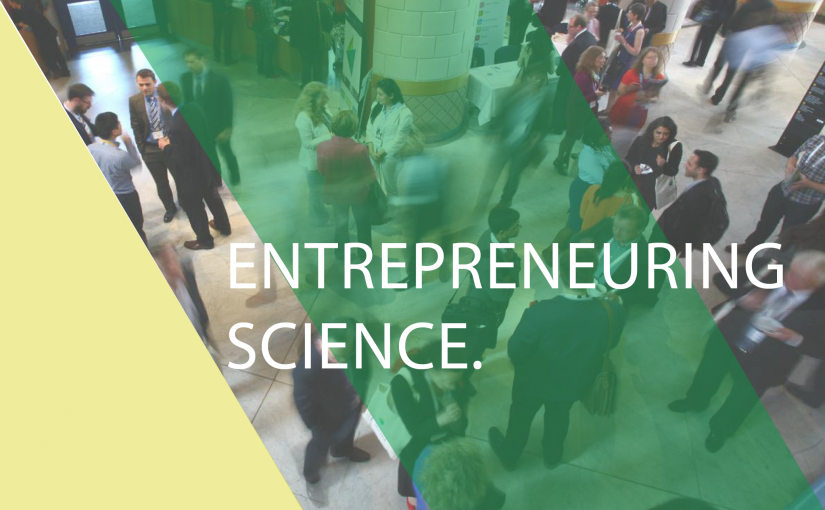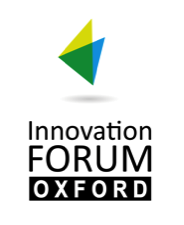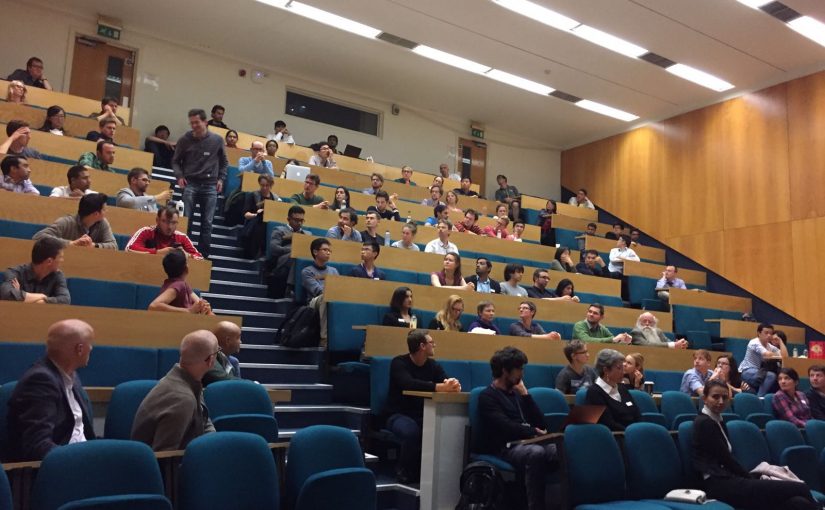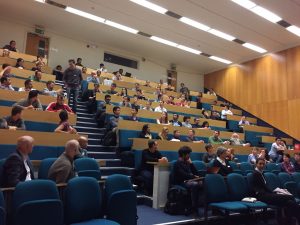Written by: Dr Mira Kassouf
IMAGINE IF! in Oxford
Oxford continues to top the World University Rankings, a testament of the excellence and impact in academic and innovative pursuits.
Innovation Forum Oxford (IFO) is embedded in this exquisite environment that keeps on giving; when you think the place is saturated with support for startups, then 10 teams of entrepreneurial scientists entrust you with their ideas and aspirations. It evokes a thrill mixed with immense sense of responsibility.
IFO orchestrated a bespoke mentoring scheme that aimed at helping the teams reassess and propel their business ideas forward. With a highly diverse backgrounds and a unified passion for innovation, Oxford mentors, a group of volunteering professionals, set out to support the teams position their idea on a path for a successful business. This is in a nutshell what local Oxford IMAGINE IF! Accelerator entailed. On Thursday 12th of October 2017 at 18:00, Innovation Forum Oxford brings you the Oxford Pitching Final, “Entrepreneurs for Entrepreneurs”, an evening where the budding science entrepreneurs are cheered on, championed, and scrutinized by veteran entrepreneurs.
To provide the teams and the audience with an inspirational and educational account of what it takes to make a shrewd innovator, a panel of Oxford startup CEOs: Susan Graham of BioCarbon Engineering, Samuel Conway of Zegami, Tristan Collins of Metaboards, and David Llewellyn of DJS Antibodies, will share the trials and tribulations of leading a startup in the Oxford ecosystem from their personal and very unique perspective.
A rare opportunity in an intimate gathering will allow you to witness the resilience and passion of startup founders, the insight and empathy of the Oxford startup CEOs, and the world-class expertise of our local judges and mentors, without forgetting the audience, our local network and supporters; A mix of great minds, big ambition and plenty of know-how.
The IMAGINE IF! Accelerator is the first truly global competition and accelerator program for science-based ventures. The accelerator provides to early stage science startups extensive opportunities: mentorship, the potential to secure non-dilutive capital, free advice from leading professional services companies and rapid networking across the Innovation Forum platform.
A glimpse into the world of Oxford’s Startups
AirBliss+
AirBliss+® is developing the most comfortable, elegant, and smart anti-pollution mask on the market. Micro-sensors measure the ambient pollution and the efficiency of the filter, lights and ear-free headphones provide safety. Wearing the AirBliss+® is an active protest against the increasing air pollution in large cities. Moreover, this connected device is part of a large portable air monitoring network. Thus, the crowdsourced air pollution measures are the foundation of real-time and accurate air pollution maps and forecasts.
BioMe Oxford Ltd
BioMe Oxford Ltd is an Oxford-based start-up company seeking to catalyse a transformation in gut health by developing a cost-effective solution for targeted gastrointestinal sampling. An ever increasing number of studies have linked human diseases to variations within the immense population of bacteria inhabiting our gut, referred to as the gut microbiome. Available methods for sampling the microbiome have limited sampling capabilities, and represent a trade-off between accuracy and cost. To address this unmet need, the company is developing BioCapture®, an ingestible device for low-cost and non-invasive sampling of the human gut microbiome. BioCapture® will facilitate large-scale diagnostic and medical research uses in a wide range of diseases.
Dartum LTD
Dartum is a syn. bio start-up formed by a multidisciplinary team that aims at producing medicines using synthetic biology. The company would create synthetically modified organisms, principally genetically modified yeast which can produce the target compound in any desired location, easily and inexpensively. This would serve researchers and healthcare professionals who need location independent and scalable medicinal compounds production.
HeatSync
HeatSync start-up develops an integrated heating system that heats rooms only when occupied. Large institutes like universities, hotels and hospitals spend millions of pounds on their energy bills while pumping thousands of tonnes of carbon dioxide into the air every year. Approximately 40% of the energy could be saved with an integrated heating system that allows the facilities managers to control the energy consumption room-by-room and stop wasting energy on rooms that are unoccupied and not in use. 40% energy saved means 40% smaller carbon footprint! The vision of HeatSync is to fight climate change and save the planet – one building at a time!
HyperC
HyperC is a technology start-up that can quickly and efficiently produce 13C-labelled compounds for the emerging technology in Hyperpolarised Magnetic Resonance Imaging enabling the study of complex structures and processes previously not visible. The company has already established their first customers with pioneers in hyperpolarized imaging at University of Oxford and at University of California San Francisco with Professor Tyler and Professor Vigneron. The company will significantly advance academic and industrial diagnostics and clinical research specifically for this emerging technology as the first European company to provide the labelled compounds cheaper and faster in contrast to the existing American based companies that mostly have taken up this technology as a secondary pipeline, and are therefore not devoted to the technology.
InVent
InVent is a team of medical experts that work in the area of digital health to meet the problem of weaning hospital patients off mechanical ventilation, which is an enormous challenge in critical care.
Patients must be retrained to breathe on their own, but retraining can be significantly delayed by busy doctor schedules and heuristic weaning techniques. InVent will help patients breathe independently by (i) automating the weaning process so it is not delayed by doctor scheduling, and (ii) using data-driven methods to personalize the weaning training.
Matrix Magnets
Matrix Magnets has a new chemical analyser based on advances in cryogenics and electronics. There is a great need for an instrument of this type in pharmaceutical labs for real-time chemical analysis and in pathology labs for clinical diagnostics. Our system has a significantly smaller footprint, lower operating and maintenance costs than existing systems. It can be deployed in any laboratory or industrial setting. Our technology can greatly accelerate the rate of pharmaceutical development by compressing the development cycle of new drugs. We expect it to have applications in cancer diagnosis by making diagnostics available at the point of use.
Oxford nanoSystems Ltd.
Founded in 2012 by experienced academics and business professionals from the Oxford community, Oxford nanoSystems (OnS) have spent five years developing a coating technology, which has shown substantial enhancements in heat transfer capabilities when applied to heat exchangers and other two-phase systems. The goal of Oxford nanoSystems is to enable the production of cheaper, lighter, and more efficient products which consume less energy, limit environmental impact and reduce costs for consumers and manufacturers. OnS has had interest from some of the world’s largest heat exchanger manufacturers to develop the coating towards a commercial product. OnS is now looking to quickly scale up to meet the needs of these customers.
Spherox Pharmaceuticals
Spherox Phatmaceuticals is a start-up led by an Oxford DPhil student, which aims at using the assay he has developed during his research project to identify compounds that block glioblastoma (GBM)- type of brain cancer- invasion. The core of the project is the world’s first assay that enables the medium-high throughput study of subventricular zone (SVZ) progenitor migration. SVZ has been identified as a source of a large subpopulation of GBM tumors. This assay has already been successfully used for the screening of small molecule compounds. Now the start-up is seeking to expand the preclinical data portfolio to demonstrate that this approach can identify compounds that block GBM invasion.
Wattson Blue
Wattson Blue is a digital health start-up formed by a multidisciplinary team of Oxford DPhil students. They work in collaboration with Oxford university coaches and athletes to develop an app and web platform that will enable the accurate and efficient monitoring of how a student-athlete’s daily activities influence their psychological well-being, and athletic performance. This will enable the user and his/her coach to identify signs of overtraining, declining performance and/or changes in mood at an early stage and intervene accordingly. The team expects this would significantly reduce the incidence of overtraining syndrome and associated mental health complications in elite student-athletes, whilst helping maximize their training gains and performance in competition.
Meet our Mentors
Tom Brown

Tom Brown is currently Associate Head of the Chemistry Department at Oxford with responsibility for Research. He is the co-founder of three Biotech companies (Oswel, ATDBio and Primer Design) and has published over 350 research papers and patents. He has received several awards including the Royal Society of Chemistry (RSC) Josef Loschmidt prize, the RSC award for Nucleic Acid Chemistry and the RSC prize for Interdisciplinary Research. He was Chemistry World entrepreneur of the year for 2014 and BBSRC Commercial Innovator of the Year and overall Innovator of the Year for 2016. Recently he was presented with a lifetime award for external engagement and promoting impact by Oxford University. Tom is a Fellow of the Royal Society of Edinburgh and a Fellow of the Royal Society of Chemistry. He is President of the Chemistry Biology Interface Division of the RSC and Editor-in-Chief of the RSC Book series on Chemical Biology.
Nicholas Edwards

Nicholas Edwards is currently Chairman of Oxtex (developing a surgical implant device for skin expansion), Satie 8 (developing an anti-obesity treatment) and Prescient Healthcare Group (a specialty biopharmaceutical product strategy consultancy). After the scientific career in medicine, he spent 18 years with Andersen Consulting (now known as Accenture). There in 2001 he was part of the corporate strategy team for Andersen Consulting developing strategy for the global business and supporting the IPO on the NY Stock Exchange and the rebranding to Accenture. In 2005, he was one of the founders of Kinapse, a business focused on providing consulting and outsourcing services to the pharmaceutical industry. Nicholas is part of the Kilfinan Group – a network of senior business people who provide free and informal mentoring to charity chief executives. Nicholas is an Associate Fellow of Green Templeton College, Oxford and chairs the Wealth Creation Oversight Committee of the Oxford Academic Health Science Network.
Alexander Finlayson

Alexander Finlayson is an Academic Clinical Fellow in Primary Care in Oxford. Developing a fledgling interest in innovation in global health he founded and is now a board member of ‘The 2023 Challenge’, an Innovation Fund and Incubator for Healthcare across Thames Valley. He has worked with some colleagues from Digital Health Oxford (DHOx) to form ‘The Hill’ a healthcare Innovation Hub based at the John Radcliffe Hosptial which launched in June 2016. He founded a UKAID/THET funded Digital Health company in Somalia, called MedicineAfrica, for which he was awarded BMJ Junior Doctor of the Year. Whilst studying Genetics and Systems biology on a Kennedy Scholarship at Harvard he developed an interest in strengthening health systems and went on to work in this field for three years as the Head of Research at the King’s Centre for Global Health.
Nick Housby

Nick has been the founding CEO of the life science businesses Novolytics (antimicrobial therapeutics, 2010), BioMimox (peptide aptamers, 2014), Arcamis (business consulting, 2010) and has served as the Director of Business Development at OBN (2012). Raising finance has been his key skill as he has raised significant public, private, VC and business angel funding (Beer and Partners, 2013) for several businesses (multiple £M) and was a coach for the Growth Accelerator programme. More recently (2016) Nick has co-founded The Clinical Genome Advisory (tcga) that exists to promote the UKs world leading strengths in genomics through the 100,000 genomes project. tcga builds global relationships with Governments and healthcare organisations seeking advice and support around genomics activity.
Brian Howlett

Brian Howlett has a long and successful career as a medtech business leader in large corporations, AIM listed companies and early stage ventures: CEO of Lombard Medical Technologies (2005 – 2009) and General Manager of Boston Scientific in UK (1999 – 2005). He is currently a board member of three emerging medtech companies, including Oxford Endovascular Limited – an Oxford University spin-out.
Eileen Modral

Eileen has been working with entrepreneurs since 1999 where she was part of a consultancy team and small fund. Since 2001 Eileen has worked for Oxford Innovation working on programmes relating to business development for SMEs including coaching for high growth. Since 2004 Eileen has managed Oxford Innovation’s angel networks under OION Ltd. Eileen led the due diligence negotiations for OION Ltd to establish a Co-investment Programme with a leading corporate bank that part inspired the Angel CoFund. She was instrumental with developing the Angels4LifeSciences network with two Life Science professionals, Nesta and the BIA in 2012 and continues to support the Forum. She is a Board member of Venturefest Oxford and has actively supported the annual event for more than 10 years. More recently Eileen has been actively involved with the launch of OION Limited’s SEIS funds in partnership with Fund Manager Innvotec; supporting the twelve companies in the portfolio.
Michalis Papadakis
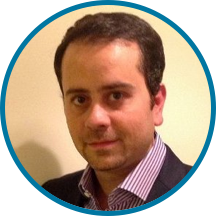
Michalis Papadakis is a co-founder and the CEO of Brainomix, an award winning University of Oxford spin-out. Building the company from the ground up, he has significant experience in start-ups and innovation. He has led the development, regulatory clearance and commercialisation of medical imaging, decision support tools for stroke diagnosis and treatment. He has secured and managed more than £1.5 million of Innovate UK funding and £2.7 million of private investment. He has a BSc Honours in Biochemistry from Imperial College and a PhD in Neurosciences from UCL School of Pharmacy. In 2005, he joined the Laboratory of Cerebral Ischaemia at the University of Oxford and he was the scientific director.
Beverley Scott

Beverley is a registered, practicing nurse with 19 years’ clinical experience in working with people with eating disorders and 14 years working in patient safety and information governance. She has extensive experience working with the UK/NHS digital health strategy at national agency level, including 12 years in senior management within the Department of Health.
Beverley has a successful track record in developing quality management systems and clinical safety risk management systems for large health technology organisations with complex matrix operating models and product development lifecycles (public and commercial sector). She has significant experience in successfully obtaining medical device and health IT system registration and CE Marking/certification, conforming to UK and NHS regulations and standards for safety risk and quality management.
